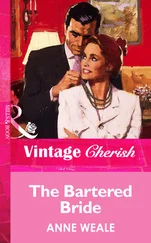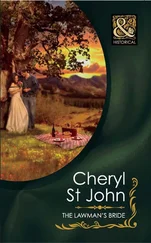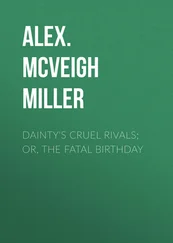1 ...7 8 9 11 12 13 ...18 “I have decided to keep the marriage pledge,” he said, holding up his hand when she would have interrupted. “Before you are so quick to say no, I remind you that you are the one who needs a marriage ceremony. I also remind you that my children—Anna’s children—need a woman who cares about them. Beata is no mother to them. It has been hard to see them so lonely since Anna died. Perhaps you will think of a marriage to me as a way to help your sister’s children as well as yourself. If you agree to it, I give you my word that I will take care of you as best I can. But I will expect you to be a good wife. I will expect you to be civil to me. I do not take Avery’s place as someone you must do battle with at every turn—”
“How can you speak of marriage? You think I’m not fit to have anything to do with your children,” she said.
“Yes,” he answered. “I do. But you are innocent in my children’s eyes and you are important to them. I have never had cause to think you unfit until now.”
Caroline looked abruptly away.
“You…don’t say anything about the baby,” she said, realizing even as she said it that she sounded as if she were actually considering the possibility of marrying him. She looked up at him. “Can you be kind to another man’s child?”
She saw a flicker of emotion cross his face. He took a moment to answer.
“The child cannot help how it got here. If you marry me, then it will be mine. There is nothing left to say about this and we are wasting time. Do we marry or not, Caroline Holt? Antworten Sie entweder ja oder nein. Answer yes or no.”
Her eyes met his briefly, but she then quickly looked away. She said nothing, her hands clutching the folds of her skirt.
“Your right to pick and choose husbands you have forfeited, Caroline Holt. You can sit and cry and live on John Steigermann’s charity or you can marry me,” he said impatiently. “If the answer is yes, we will have the ceremony right now. Everyone who is still here will be invited to stay to witness it. There will be no hiding. People already know the reason for our marrying—or not marrying. There will be no more shame about what has happened.”
“I don’t even know you,” Caroline said abruptly. “You’re a stranger to me.”
“Every person who marries marries a stranger,” Frederich said. “No one knows that better than I. But I am less a stranger than most. We are part of the same family.” He stared at the bruises on her face. “I give you my word now that I will not beat you. I will not let Avery or anyone else beat you. What else do you want?”
What indeed? Caroline thought.
The door abruptly opened.
“I can’t wait out here any longer, Frederich,” Johann said in German. “I’ve been talking to Eli and he—”
“This matter is between Caroline Holt and me. Eli has no part in it.”
“I know that, Frederich. It’s Beata I’m worried about. She’s becoming a…problem.”
“Beata is always a problem.”
“She is threatening to swoon,” Johann said in English.
“Swoon?” Frederich asked, not familiar with the word.
He smiled at Johann’s explanation of this terrible thing Beata would inflict upon him to have her way. He had no doubt that their sire would have capitulated immediately at such a dire threat from his spoiled daughter. The old man was long gone—and Beata still believed that the mere possibility of her keeling over in public would turn the world according to her wishes.
“Caroline Holt,” he said, getting up from the chair. “We have wasted enough time. Tell me now. Do we go make Beata swoon or not?”
Nearly everyone stayed for the wedding.
Forgive me, Ann, she kept thinking. She was a coward and she had no other choice. She clung to Frederich’s arm like a person in danger of drowning, far more ashamed of having to accept his offer of marriage than of her out-ofwedlock pregnancy. She stood before God and she answered the questions Johann Rial asked her until suddenly the ordeal was over. The church emptied, and a feeble celebration began. Johann brought out three kegs of hard cider from his own cellar for the impromptu wedding guests. The men swarmed the kegs, dragging Frederich off with them as they queued up to pass around a common dipper. Their congratulations were loud and boisterous, and some of them began cracking their whips in a kind of belated Polterabend, the noisemaking necessary to scare away the German evil spirits the evening before a wedding. She remembered the raucous demonstration surrounding Ann’s marriage to Frederich—Ann standing on the Holt front porch and laughing up at her dour soon-to-be-husband.
It occurred to Caroline, too, that everyone here accepted the obvious reason for her agreeing to marry Frederich Graeber. She was pregnant; the real father of the baby was unwilling. And while Eli had come to her rescue like some Sturm und Drang hero who intended to make an honest woman of her no matter what, it was Frederich’s arm she held on to. She held on to his arm, and she knew the truth. She had married Frederich because on the worst day of her life, this seemingly humorless man had dared to make light of her predicament. Neither his prenuptial promises nor her great need had swayed her the way his almost mischievous remark about Beata had. She had nearly laughed in spite of her misery, and it was as if he had given her a brief and shining glimpse of the person she used to be.
What happened to that girl? she wondered, watching as Frederich accepted another dipperful of cider. What happened to the Caroline Holt who used to dance and sing and laugh so easily? She could remember quite distinctly a time when she had been happy. Being sent to school in town when she was fifteen had been one of the greatest joys of her life. Her mother had insisted that she be educated, paying for Caroline’s three years at the Female Academy out of her own small inheritance, regardless of her husband’s wishes. But today was the first time Caroline had realized that her father had been right in wanting to keep his daughter in her place. Her mother had done her no favor in giving her a taste of the kind of life she had come from. An education was supposed to make one better, not forever dissatisfied and longing for the things one couldn’t have. Her mother had been born to live in town and go to teas and lectures and poetry readings, not she. She had been born to be a farmer’s wife, to work herself into mindless exhaustion, to bear children until she died like Ann. Her fine education had done nothing to change that. She took a quiet breath. If she was thankful for anything, it was that neither of her parents had lived to see this day. Her downfall would have done nothing but fuel the contempt they had for each other.
She jumped as John Steigermann fired a shotgun in the air. He gave her a sheepish grin and she smiled. Given the circumstances of this marriage, she needed to have the evil spirits as far away as possible. It was a shame that the Polterabend didn’t work on Beata. Her new sister-in-law hadn’t swooned after all, and every time Caroline looked up, Beata was whispering to a different group of women. Caroline had misjudged Beata in the early days of Ann’s marriage, thinking her flighty and insecure and living in Frederich’s household on sufferance much as she herself lived in Avery’s. Beata always talked nervously with her hands, her pale eyes darting away, as hard to pin down as a little boy caught with the telltale remains of a pie left cooling on the windowsill. Her torso was too thick for her arms and legs, the heaviness accentuated by a dowager’s hump. There were heavy lines in her face from nose to mouth and between her eyebrows. She was crude and vulgar and vindictive, and she had made Ann’s life a nightmare.
Читать дальше












